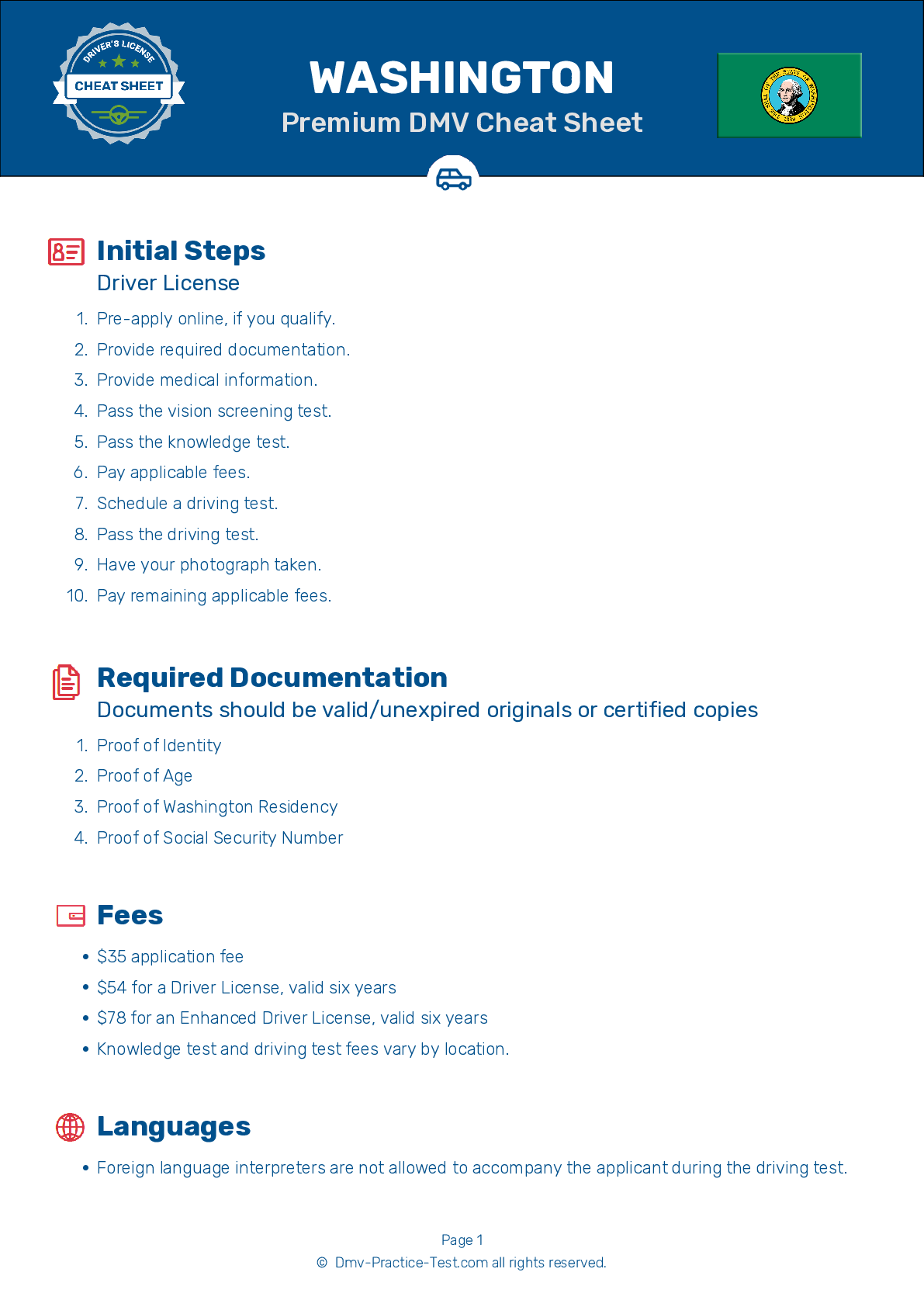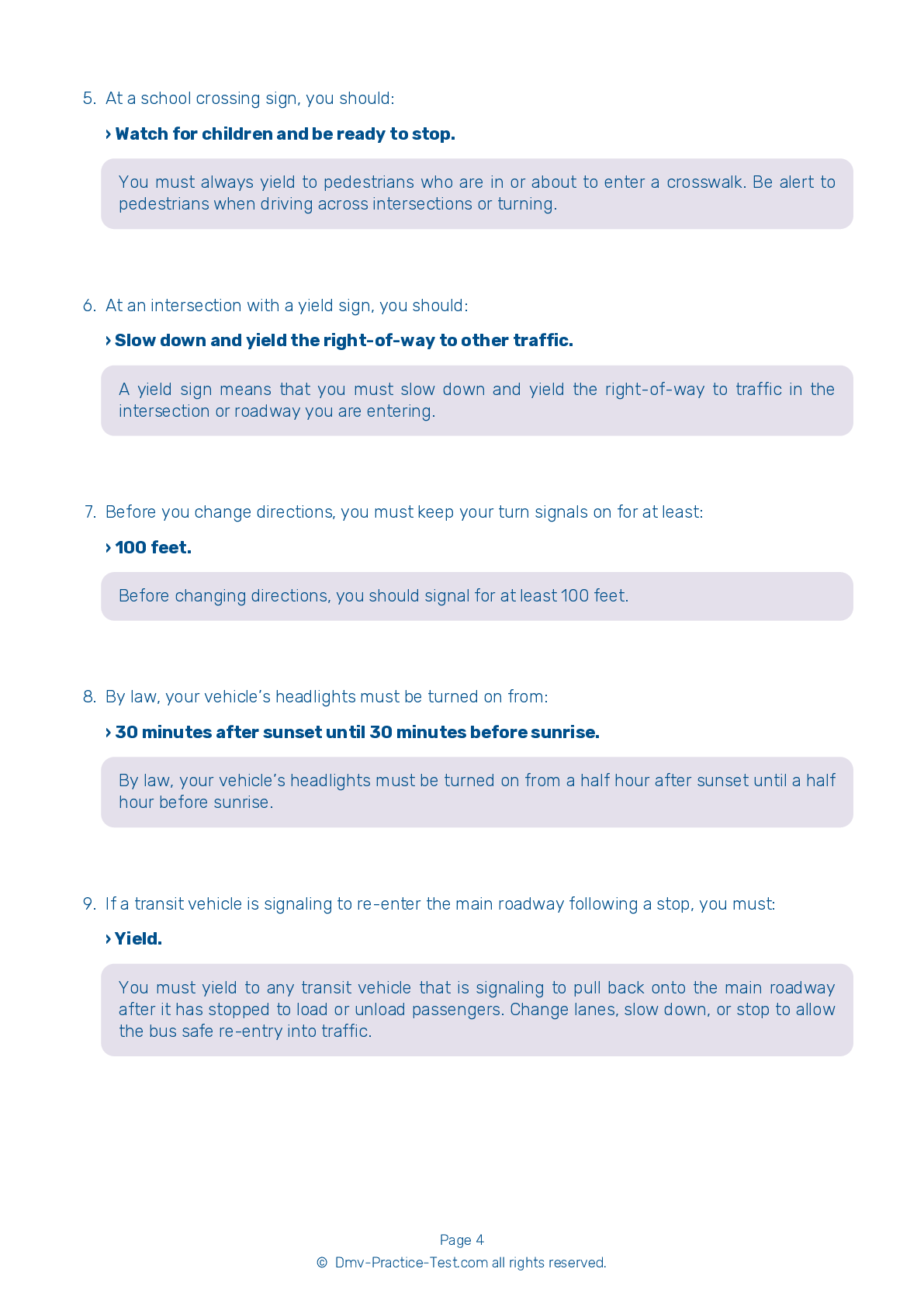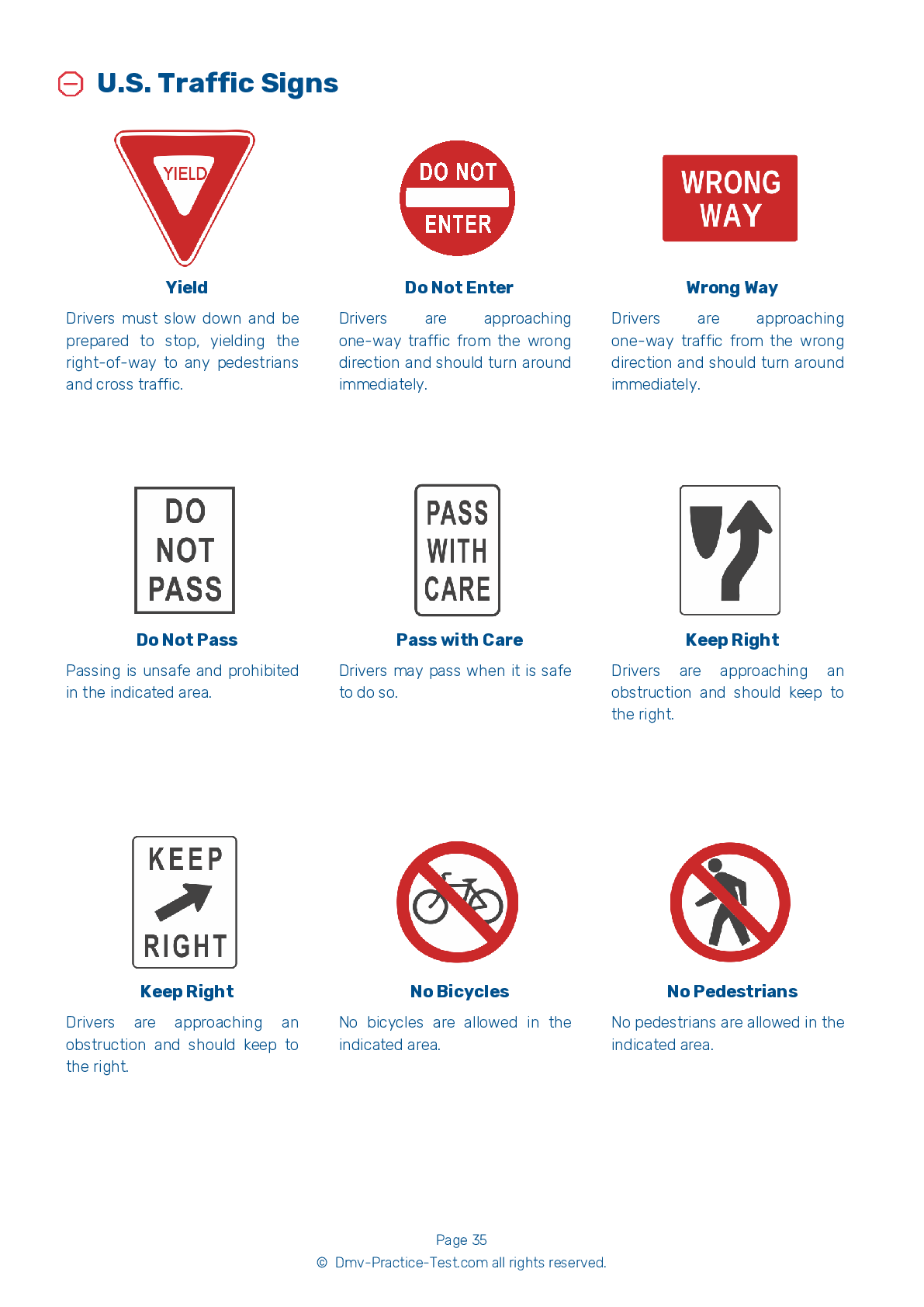FREE Washington DMV Practice Test #15 Page 2 of 4
The Washington DMV practise examinations have been updated for January 2026. It includes questions based on the Washington Driver Handbook's most significant traffic signals and legislation for 2026. Use actual questions that are very similar (often identical!) to the DMV driving permit test and driver's licence exam to study for the DMV driving permit test and driver's licence exam.
On the practise exam, each question gets a tip and explanation to help you remember the concepts. The written component of the official Washington DMV test will feature questions about traffic rules, traffic signs, and driving statutes, as well as knowledge from the Driver Handbook.
To obtain a passing grade, you must correctly answer 20 of the 25 questions. Use the practise exam provided by the Washington Department of Motor Vehicles to help you prepare for your instruction permit or driver's licence.
The DMV exam is available in several languages.
Using any kind of testing assistance will result in an automatic fail, and the DMV may take additional action against your driver's licence, so stay away from it.
7 . Highway markings:
Highway markings provide information for drivers. Markings help drivers correctly position their vehicles on roadways, inform drivers of safe passing zones, and warn drivers about upcoming conditions.
8 . When passing other vehicles:
Before passing another vehicle, check your mirrors and blind spots. Before changing lanes, activate the appropriate turn signal. Re-enter the lane when you can see the front of the passed vehicle in your rearview mirror.
9 . If one of your tires blows out as you are driving, you should:
If a tire blows out while you are driving, hold the steering wheel tightly and keep the car headed straight down the road. Ease your foot off the gas pedal and do not apply the brakes until you have complete control. When the car is under control, brake gently and pull off the road at the nearest safe location.
10 . On a roadway with three or more lanes, you must stop for a school bus with flashing red lights:
In general, you must stop for a school bus that is flashing its red lights, whether it is on your side or the opposite side of the road. However, you are not required to stop if the bus is traveling in the opposite direction on a road that has three or more marked traffic lanes, or that is divided by a median or physical barrier.
11 . The effect that lack of sleep has on your safe driving ability is the same as:
Fatigue and being under the influence of alcohol have similar effects on your ability to drive safely. For example, being awake for 18 hours impairs your driving about as much as a blood alcohol level of 0.05 percent. Being awake for 24 hours in a row has the same effect on your driving as a blood alcohol level of 0.10 percent.
12 . Which of the following statements is true?
If the weather changes suddenly, you will need to adjust your driving to adapt. Always slow down when driving in rainy or foggy conditions. Be especially aware of vehicles behind you that may be going too fast for conditions.
See the exact questions that will be on the 2026 Washington DMV exam.
99.2% of people who use the cheat sheet pass the FIRST TIME
LT gives us an insight on how the cheat sheet provided her with all the study questions she needed before taking her test.
Joe initially studied with the handbook and failed his test, he eventually found us online, studied and pass his test the first time around.
2026 Washington | Frequently Asked Questions
1. Complete a driver education course if you're under 15 ½.
2. Visit a driver licensing office.
3. Provide proof of identity, Social Security number, and residence.
4. Pass the knowledge test.
5. Pay the required fee.
6. If you're under 18, a parent or guardian must sign the application.
Remember, with a permit, you must always have an adult 21 years or older in the car with you.
1. Not checking mirrors and blind spots.
2. Incorrect signaling or forgetting to signal.
3. Lack of steering control.
4. Improper lane positioning and changing.
5. Not following traffic signs or signals.
6. Inadequate observation at intersections.
7. Speeding or driving too slowly.
8. Failing to yield the right of way where necessary.
Remember, practice is key to overcoming these errors.



